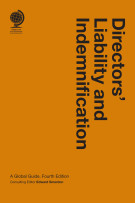A new approach to business failure and insolvency
12 April 2016

Author bio coming soon
In our latest blog, Alan Tilley founding principal of Bryan, Mansell and Tilley LLP, discusses the new EU regulations to adopt more flexible pre-insolvency processes in the UK.
Will the EU Regulation’s March 2014 recommendation to adopt more flexible pre-insolvency processes affect the UK?
In March 2014 the European Commission published its recommendation on “a new approach to business failure and insolvency” which set out minimum standards for a restructuring framework in each member state. The broad market reaction in the UK was mixed ranging from supportive from those sectors favouring facilitation of consensual restructuring ahead of formal process to “it ain’t broke don’t fix it”, particularly from the insolvency profession. The latter view was the dominant view in the UK Government response of March 2015 which followed a brief industry consultation. It cited the widely held belief that the UK system incorporating Schemes of Arrangement, CVA’s and pre-pack administrations was both flexible and efficient as demonstrated by the general direction of forum shopping to London. There seemed little government appetite for legislation change.
Some interested parties did take a different view, pointing to the gap between consensual restructuring where sufficient liquidity kept creditors at bay whilst solutions were negotiated (sometimes called Consensual Creditors’ Compositions), and any process signalling near insolvent distress to the customer and supplier constituency which damaged goodwill and therefore both value and recovery prospects. There were calls for a properly defined automatic stay, consistent methodology and independence in valuations, and post-petition super priority financing. Some influential parties pointed out the better recoveries for consensual restructuring but also acknowledging that once in formal process, the UK system with decisions undertaken by more commercially minded insolvency practitioners than the generally constrained Courts in continental Europe was fast, more predictable and more efficient than the continental counterparts.
Fast forward 12 months and we now see the EU is “assessing the state of play” to see whether further measures to strengthen the move to facilitate restructurings at an earlier stage and to allow debtors to restructure without recourse to formal procedures are required. A multi-jurisdictional panel has been established from across the spectrum of the restructuring professions. In short, are we going to see an EU Directive which could mandate the UK to close the gap between consensual creditors’ compositions and CVA’s?
In the past year there have been some interesting developments in continental Europe. The Dutch have introduced new legislation borrowing elements from both the English Scheme of Arrangement and US Chapter 11. In France where the restructuring process ranged from out of court proceedings under a “mandate ad hoc” through conciliation, safeguard in various forms, reorganisation, to liquidation, changes have been made by the “Loi Macron” to rebalance creditor rights and speed up the procedures. It has been said, apocryphally no doubt, that whilst French law works well in theory but not in practice, English law works well in practice but will never work in theory. There is a kernel of truth in this. “Loi Macron” has moved to improve French practice. English law which many observers feel falls short of the EU recommendation to improve pre-insolvency process, but works well in practice once in formal process, needs to step up to the challenge of early stage reorganisation avoiding the dreaded “I” word of insolvency. This will encourage directors to take earlier action on the one hand and give greater clarity over protection to their personal liabilities, an area of confusion that can lead to premature filings.
So we will have to wait and see what comes out of this process and of course what happens on June 23 in the UK Referendum. But we may be in for a change that could have a significant impact on UK process particularly affecting the SME market. Anything that encourages earlier intervention in failing companies is to be welcomed.
Alan Tilley is Managing partner at BM&T LLP and Chairman of European Structuring Solutions. He is also a Director of TMA Europe and a founding director of the European Association of Turnaround Professionals. Full details of the TMA Annual Conference in Rome this year on 9-10 June can be found here: http://www.tma-europe.org/annual-conference/detail-16.asp?ItemID=395.













Any comments - send us an email